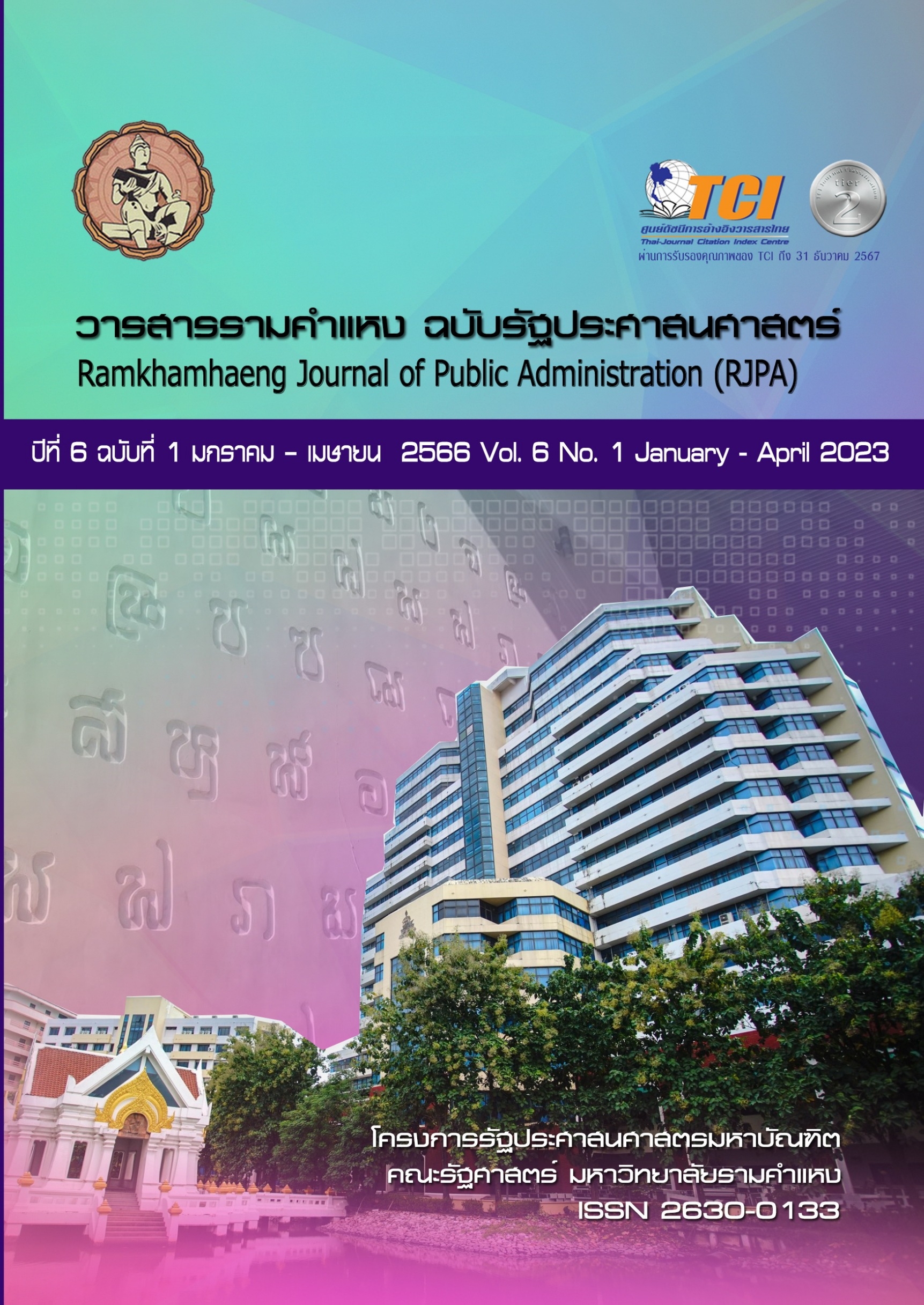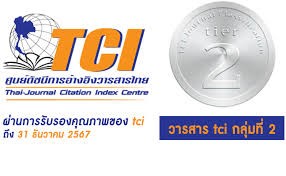ความท้าทายของการนำนโยบายไปสู่การปฏิบัติ ( Challenge of policy implementation )
กรณีศึกษาโครงการความร่วมมือระหว่างรัฐบาลแห่งราชอาณาจักรไทยและรัฐบาลแห่งสาธารณรัฐประชาชนจีน ในการพัฒนาระบบรถไฟความเร็วสูงเพื่อเชื่อมโยงภูมิภาค ช่วงกรุงเทพมหานคร – หนองคาย (A case study of high speed rail project for Bangkok–Nong Khai route under the cooperation of Thai and Chinese government)
Abstract
บทคัดย่อ
การศึกษาวิจัย เรื่อง ความท้าทายของการนำนโยบายไปสู่การปฏิบัติ กรณีศึกษาโครงการความร่วมมือระหว่างรัฐบาลแห่งราชอาณาจักรไทยและรัฐบาลแห่งสาธารณรัฐประชาชนจีน ในการพัฒนาระบบรถไฟความเร็วสูงเพื่อเชื่อมโยงภูมิภาค ช่วงกรุงเทพมหานคร – หนองคาย ซึ่งเป็นการวิจัยเชิงคุณภาพ จากการสัมภาษณ์ผู้ให้ข้อมูลสำคัญจำนวน 10 คน ผลการวิจัยพบว่า โครงการรถไฟความเร็วสูงเป็นการดำเนินโครงการโดยใช้ความได้เปรียบทางด้านภูมิศาสตร์เพื่อเพิ่มขีดความสามารถของผู้ให้บริการภาคขนส่งและอุตสาหกรรมที่เกี่ยวเนื่อง และโดยเฉพาะกับการเชื่อมโยงกับสาธารณรัฐประชาชนจีนที่มีอัตราการเติบโตทางเศรษฐกิจสูงที่สุดแห่งหนึ่งของโลก แต่กระนั้น ยังพบปัญหาในการดำเนินโครงการ เช่น ปัญหาด้านกฎหมาย ปัญหาการแพร่ระบาดของโรคโควิด–19 จึงอาจส่งผลกระทบต่อระยะเวลาของโครงการ ซึ่งเมื่อมองในแง่ของนโยบายรถไฟความเร็วสูงจะทำให้ทราบว่า รัฐบาลมีความจำเป็นที่จะต้องยกระดับมาตรฐานระบบขนส่งทางรางให้สามารถแข่งขันกับการเดินทางประเภทอื่นได้ ทั้งนี้ ในประเด็นปัญหาอุปสรรค ผู้วิจัยมีข้อเสนอแนะ ดังนิ้ 1) การรถไฟแห่งประเทศไทยในฐานะเจ้าของโครงการจำเป็นต้องมีการคาดการณ์ปริมาณวัสดุที่จำเป็นต้องใช้ว่ามีเพียงพอต่อปริมาณความต้องการหรือไม่และจำเป็นต้องคำนึงถึงความผันผวนของราคาวัสดุก่อสร้างที่อาจส่งผลกระทบต่อต้นทุนโครงการในอนาคต 2) ต้องมีความชัดเจนในแผนงานของหน่วยงานที่จะดูแลเรื่องรถไฟความเร็วสูง 3) ควรกำหนดแนวทางความร่วมมือกับสถาบันการศึกษาให้ชัดเจนเพื่อให้เกิดแนวทางการพัฒนาด้านบุคลากรอย่างเป็นรูปธรรม
Abstract
This is a qualitative research that examines the challenges of policy implementation in a cooperation project between the governments of Thailand and China to develop high-speed rail systems connecting Bangkok and Nong Khai. The study aims to elucidate the background and essence of high-speed rail policy formulation and identify problems and obstacles, including the need for government investment in rail infrastructure development. Ten key informants were interviewed, and the results revealed that the high-speed rail project leverages geographical advantages to enhance transportation services and related industries, especially in connection with China's rapid economic growth. However, the project encountered various implementation difficulties, such as legal issues and the impact of COVID-19 on the project timeline. Therefore, the study recommends that the government should establish higher standards for rail transport to compete with other forms of travel. Moreover, the researchers suggest the following solutions to the obstacles: 1) the State Railway of Thailand needs to forecast the material demand accurately, accounting for fluctuations in construction material prices that may impact future project costs; 2) the responsible agency should have a clear plan for high-speed rail; 3) there should be a clear guideline for cooperation with educational institutions to develop human resources.




 Publication Policy (นโยบายการตีพิมพ์บทความ)
Publication Policy (นโยบายการตีพิมพ์บทความ) Publication Ethics (จริยธรรมการตีพิมพ์บทความ)
Publication Ethics (จริยธรรมการตีพิมพ์บทความ)